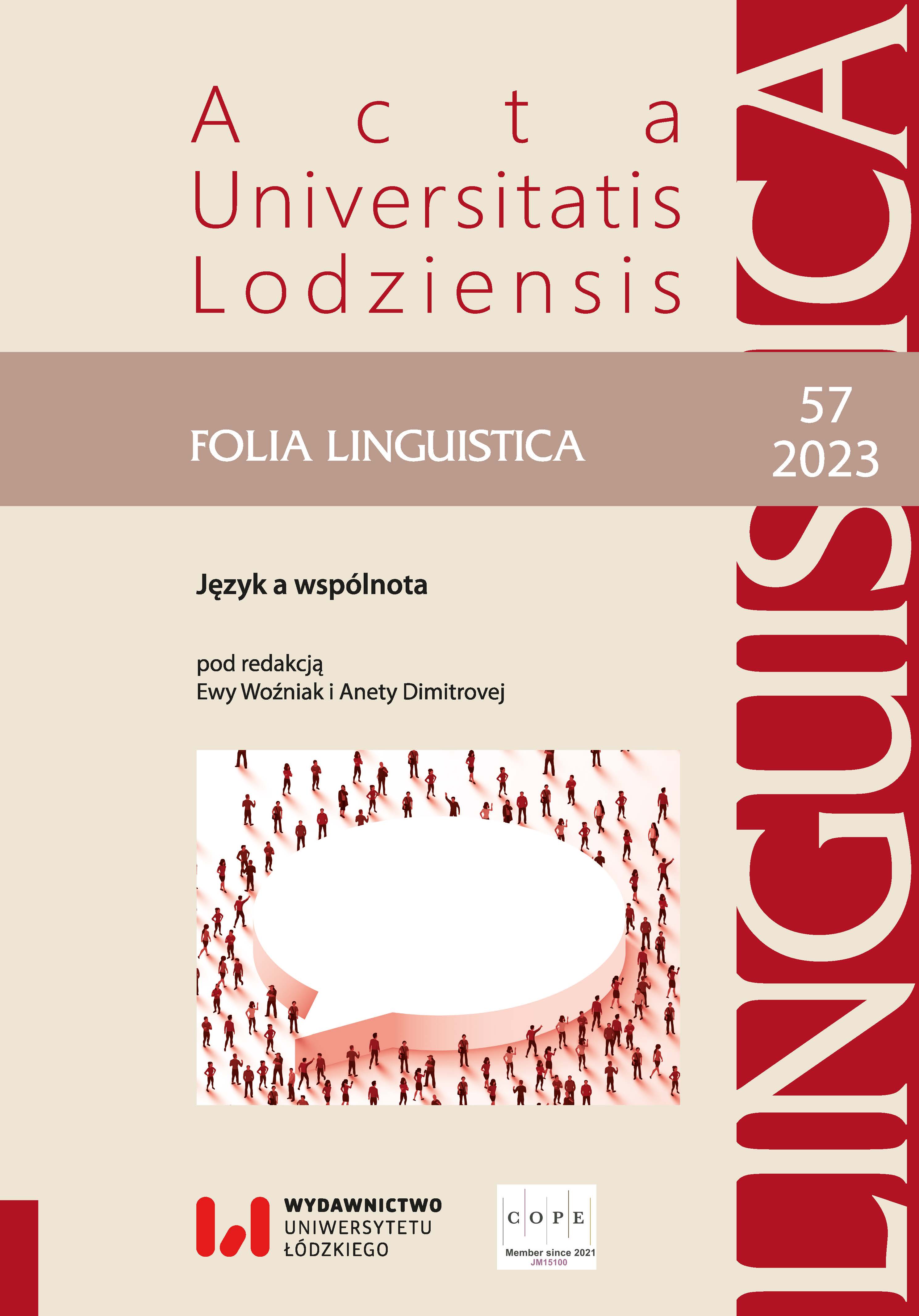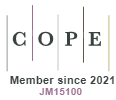The lexis of two 16th-century anti-reformation confessional guides in the context of the origins of these prints (“ikonoklasta” vs. “ikonomach”, “zmalowane” vs. “wykonterfetowane”, “gamratka” vs. “miłośnica”)
DOI:
https://doi.org/10.18778/0208-6077.57.10Keywords:
anti-reformation confessional guides, lexis of the Reformation, genetic relations of textsAbstract
In 1561, two anti-reformation religious guidebooks were published anonymously: Rodzay… and Wizerunk… The researcher’s attention is drawn to two fragments of these prints in particular, because they are surprisingly similar (these are the only places in both works that coincide). The aim of the article is a lexical analysis of these fragments and an attempt to answer the question whether linguistic findings provide arguments to explain the genetic relations of the analyzed prints: original text – translation – compilation? This question especially concerns the Wizerunk…, about which much less is known than about the Rodzay…
Three pairs of lexemes were analyzed, showing different lexical solutions adopted by anonymous authors: ikonoklasta vs. ikonomach, zmalowane vs. wykonterfetowane, gamratka vs. miłośnica.
The formulated conclusions seem to confirm Zbigniew Nowak’s non-linguistic thesis that in the case of Wizerunk… we are dealing with a compilation, but at this stage of research it is difficult to specify this thesis in detail.
Downloads
References
Genealogia Et Successio Martini Lutheri, Quinti Evangelistae Et Patris, Qui Genuit Hos Tot Evangelicos Filios Et Familias, In Orbe Christiano, Ecclesiae Dei Et Sibi Mutuo rebellantes, drukarnia Mikołaja Scharffenberga, Kraków 1561, online: Dolnośląska Biblioteka Cyfrowa, https://tinyurl.com/yu5vpjh9 (dostęp: 15.03.2019).
Google Scholar
Rodzay álbo potom∫two Marćiná Luterá / piątego Ewányeli∫ty y Oycá. Ktory w∫płodźił ty Ewányeliy∫kie Syny / á domy w krześćiáństwie / ktorzy y s Ko∫ćiołem Bożym / y ∫ámi s ∫obą walczą, b.m.w. 1561, online: Dolnośląska Biblioteka Cyfrowa, https://tinyurl.com/atjttkwb (dostęp: 15.03.2019).
Google Scholar
Wizerunk Falecznego y Duchá / y náuki / y pi∫má / tychto od Luterá począw∫zy aż do dzi∫iey∫zych nowo Ewángielikow: w ktorym iáko we źwierćiedle iáśnie obeyzrzy∫z / one Be∫thyą z wielą głow o iednym ćiele / co ią wykonterfetował ∫więty Jan w ∫wym obiáwieniu, drukarnia Scharffenbergerów, Kraków 1561, online: Dolnośląska Biblioteka Cyfrowa, https://tinyurl.com/4zrntn8c (dostęp: 15.03.2019).
Google Scholar
Bańkowski A., 2000, Etymologiczny słownik języka polskiego, Warszawa: Wydawnictwo Naukowe PWN, t. 1.
Google Scholar
Brückner A., 1957, Słownik etymologiczny języka polskiego, Warszawa: Wydawnictwo Naukowe PWN, przedruk wyd. 1 (Kraków 1927).
Google Scholar
Knapiusz G., 1643, Thesaurus polono-latino-graecus, drukarnia Franciszka Cezarego, Kraków, t. 1–2, online: Biblioteka Uniwersytetu Warszawskiego, http://ebuw.uw.edu.pl/Content/283674/t2h.html (dostęp: 15.03.2019).
Google Scholar
Kowalska D., 2017, Czy Mikołaj Rej jest autorem prozatorskiej parafrazy Psałterza Dawidowego? O dylematach badacza w ustalaniu autorstwa dawnych tekstów, „Roczniki Humanistyczne” LXV, 6, s. 133–147.
Google Scholar
DOI: https://doi.org/10.18290/rh.2017.65.6-7
Kreja B., 1999, Formacje na -anin i -an w języku polskim i w innych językach słowiańskich, w: B. Kreja, Słowotwórstwo polskie na tle słowiańskim. Studia, Gdańsk: Wydawnictwo Uniwersytetu Gdańskiego, s. 46–64.
Google Scholar
Kuraszkiewicz W., 1986, Badanie autorstwa tekstów anonimowych metodą statystyki językowej, w: W. Kuraszkiewicz, Polski język literacki. Studia nad historią i strukturą, Warszawa–Poznań: Wydawnictwo Naukowe PWN, s. 671–678 (przedruk wydania z 1961).
Google Scholar
Lehmann J., 1937, Konfesja Sandomierska na tle innych konfesji w Polsce XVI wieku, Warszawa: Księgarnia W. Mietke.
Google Scholar
Masson H., 1993, Słownik herezji w Kościele katolickim, Katowice: Książnica.
Google Scholar
Michalska-Górecka P., 2021, Muncerianie, rakowianie, tropiści. Nazwy sekwatywne w polszczyźnie XVI wieku, Poznań: Wydawnictwo „Poznańskie Studia Polonistyczne”.
Google Scholar
Nowak Z., 1979, Pierwsze polskie informatory wyznaniowe na tle piśmiennictwa antyreformacyjnego z XVI wieku, „Acta Universitatis Nicolai Copernici”, s. 33–49.
Google Scholar
Rymut K., 1999, Nazwiska Polaków. Słownik historyczno-etymologiczny, Kraków: Wydawnictwo Instytutu Języka Polskiego PAN, t. 1.
Google Scholar
Downloads
Published
How to Cite
Issue
Section
License

This work is licensed under a Creative Commons Attribution-NonCommercial-NoDerivatives 4.0 International License.










